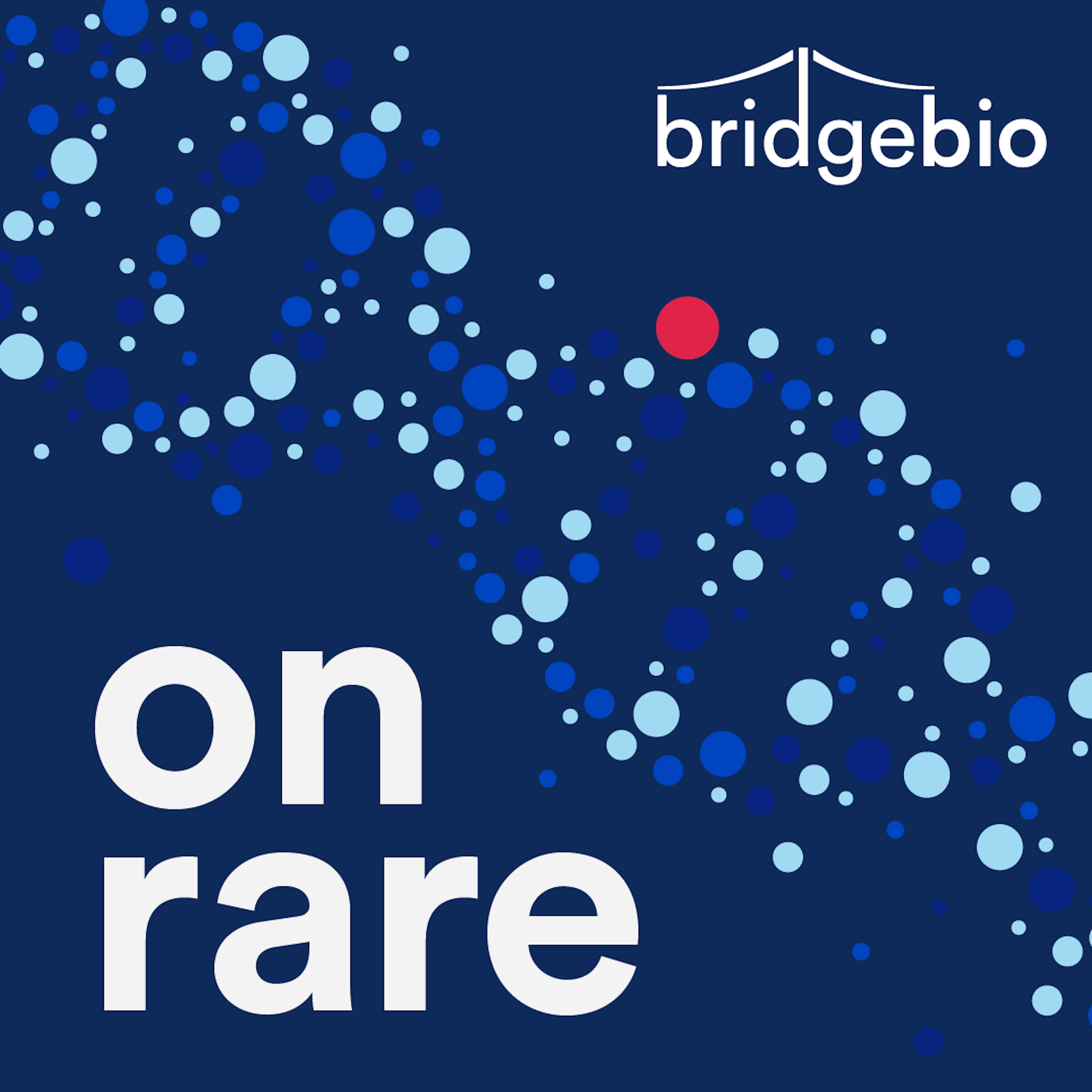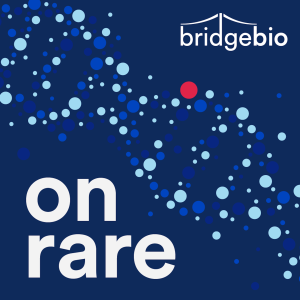
18.3K
Downloads
39
Episodes
Join us each month to listen and learn from the experts – people living with rare conditions. We’ll discuss the challenges and triumphs of life with a rare genetic condition and hear from scientists working to develop new medicines. Honest conversations with the rare community, led by the patient advocacy team at BridgeBio. Subscribe below to catch each episode as it goes live.
Episodes

Thursday Jun 26, 2025
Thursday Jun 26, 2025
Seizures, sleepless nights, and mysterious white patches on his skin marked the beginning of Daniel’s journey with Tuberous Sclerosis Complex (TSC). Diagnosed at age 6, Daniel faced a childhood filled with MRIs, EEGs, and specialist visits, often requiring cross-country travel for coordinated care. In this moving episode of On Rare, David Rintell, Head of Patient Advocacy at BridgeBio, and Mandy Rohrig, Senior Director of Patient Advocacy at BridgeBio Gene Therapy, speak with Daniel, a 31-year-old living in Seattle, about growing up with TSC, the emotional toll of visible symptoms, and the stigma he faced from peers. He reflects on the cognitive and mood impacts of TSC, including OCD and outbursts, and how he often kept to himself to feel more accepted. Today, Daniel is an active advocate in the TSC community, emphasizing the importance of connection, representation, and finding support among those with shared experiences. As he puts it, “You have to find your people.”
Che-Wei Chang, Principal Scientist at BridgeBio, presents a medical overview of Tuberous Sclerosis Complex (TSC), a rare genetic disorder marked by seizures and benign tumors throughout the body. TSC results from a spontaneous mutation in a single copy of the TSC1 or TSC2 gene, which normally inhibit mTOR, an enzyme that regulates cell growth. Loss of this inhibition leads to mTOR hyperactivation, leading to abnormal cell proliferation and tumors in the brain, kidneys, skin, and other organs. Diagnosis typically involves identifying tubers in the brain along with tumors in other organs and is confirmed through genetic testing. Treatments include mTOR inhibitors, which are effective against many TSC-related tumors, and anti-seizure medications, although drug resistance is common.

No comments yet. Be the first to say something!